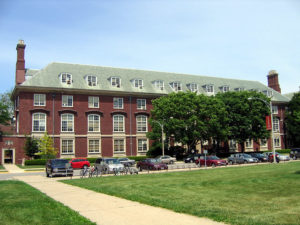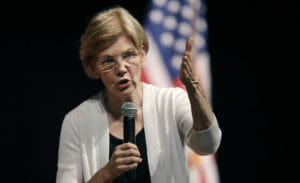Great Recession Continues to Loom Over 2016 Graduates, Even as Corporate Profits Rise
The New York Times editorial board released a depressing report recently on the bleak job prospects faced by high school students graduating this year, a situation it traces to consistent political failures in recent times. Shutterstock
Shutterstock
Shutterstock
The New York Times editorial board released a depressing report recently on the bleak job prospects faced by high school students graduating this year, a situation it traces to consistent political failures in recent times.
From The New York Times:
This year’s high school graduates were 10 years old when the economy hit the skids in 2008. Many college graduates in the class of 2016 were 14. Yet, their economic prospects remain darkened by the enduring effects of the Great Recession. … The recent unemployment rate for college graduates ages 21 to 24 was 5.5 percent, compared with 4.3 percent in 2000. Their underemployment rate — which includes the unemployed, those who have briefly left the work force and those stuck in part-time jobs — was recently 12.3 percent, compared with 7.1 percent in 2000. And in 2015, nearly 45 percent of college graduates ages 22 to 27 were in jobs that did not require a college degree, compared with 38 percent in 2000. Over the same period, student debt has soared, which means that many of today’s graduates are trying to pay off more debt with less secure jobs.
The situation for new high school graduates is far bleaker, in part because many lower-wage jobs are being filled by college graduates. Among high school graduates ages 17 to 20, unemployment is nearly 18 percent, compared with 12 percent in 2000. One in three are underemployed, compared with roughly one in five in 2000. … These persistent problems are the result of political failure. Job growth and pay growth were weak and largely ignored as policy issues for most of the 2000s, even before the Great Recession. To restore full employment after the crash would have required sustained government investment in many areas, including infrastructure, education, health care and energy technologies.
More public spending could have raised demand at a time of diminished private-sector spending. But Republicans in Congress have rejected that approach and have embraced budget cuts that have hampered broader recovery and growth, at times with the support or acquiescence of Democrats and administration officials.
Read more.
— Posted by Natasha Hakimi Zapata
Your support matters…Independent journalism is under threat and overshadowed by heavily funded mainstream media.
You can help level the playing field. Become a member.
Your tax-deductible contribution keeps us digging beneath the headlines to give you thought-provoking, investigative reporting and analysis that unearths what's really happening- without compromise.
Give today to support our courageous, independent journalists.







You need to be a supporter to comment.
There are currently no responses to this article.
Be the first to respond.